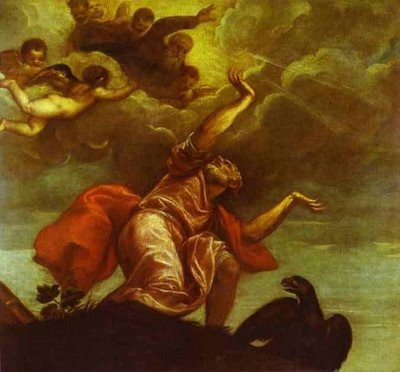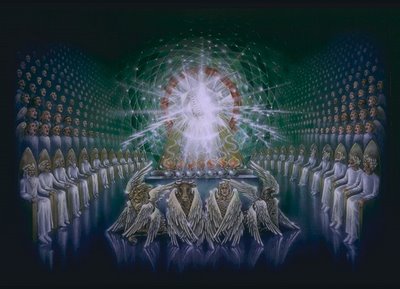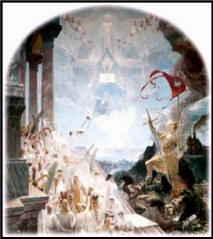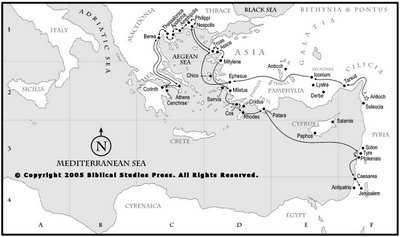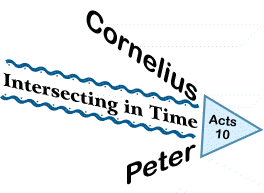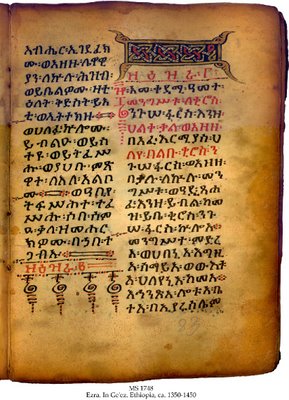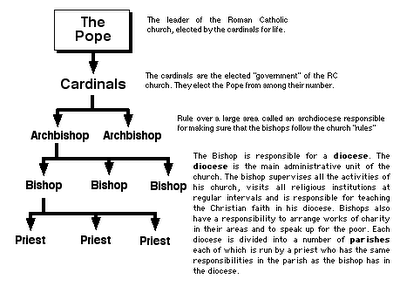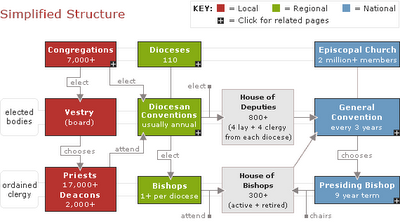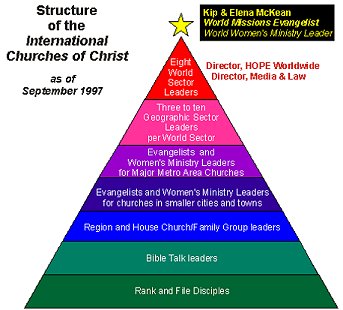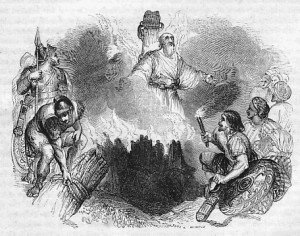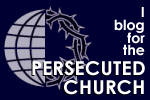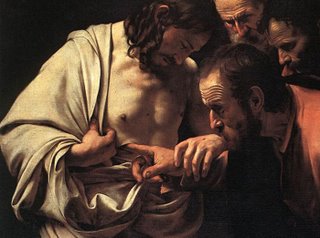
My Seminary: Statement of Faith
Under God, and subject to biblical authority, the faculty, managers/administrators, and trustees of (name purposefully hidden from those who do not have decent intentions) Theological Seminary bear concerted witness to the following articles, to which they subscribe, which they hold to be essential to their ministry, and which are the foundation upon which the seminary is based.
I. God has revealed himself to be the living and true God, perfect in love and righteous in all his ways, one in essence, existing eternally in the three persons of the Trinity: Father, Son, and Holy Spirit.
II. God, who discloses himself to mankind through his creation, has savingly spoken in the words and events of redemptive history. This history is fulfilled in Jesus Christ, the incarnate Word, who is made known to us by the Holy Spirit in sacred Scripture.
III. Scripture is an essential part and trustworthy record of this divine self-disclosure. All the books of the Old and New Testaments, given by divine inspiration, are the written word of God, the only infallible rule of faith and practice. They are to be interpreted according to their context and purpose and in reverent obedience to the Lord who speaks through them in living power.
IV. God, by his word and for his glory, freely created the world of nothing. He made man and woman in his own image, as the crown of creation, that they might have fellowship with him. Tempted by Satan, they rebelled against God. Being estranged from their Maker, yet responsible to him, they became subject to divine wrath, inwardly depraved and, apart from grace, incapable of returning to God.
V. The only mediator between God and humankind is Christ Jesus our Lord, God's eternal son, who, being conceived by the Holy Spirit and born of the Virgin Mary, fully shared and fulfilled our humanity in a life of perfect obedience. By his death in our stead, he revealed the divine love and upheld divine justice, removing our guilt and reconciling us to God. Having redeemed us from sin, the third day he rose bodily from the grave, victorious over death and the powers of darkness. He ascended into heaven where, at God's right hand, he intercedes for his people and rules as Lord over all.
VI. The Holy Spirit, through the proclamation of the gospel, renews our hearts, persuading us to repent of our sins and confess Jesus as Lord. By the same Spirit we are led to trust in divine mercy, whereby we are forgiven all our sins, justified by faith alone through the merit of Christ our Savior, and granted the free gift of eternal life.
VII. God graciously adopts us into his family and enables us to call him Father. As we are led by the Spirit, we grow in the knowledge of the Lord, freely keeping his commandments and endeavoring so to live in the world that all may see our good works and glorify our Father who is in heaven.
VIII. God, by his Word and Spirit creates the one holy catholic and apostolic Church, calling sinners out of the whole human race into the fellowship of Christ's Body. By the same Word and Spirit, he guides and preserves for eternity that new, redeemed humanity, which, being formed in every culture, is spiritually one with the people of God in all ages.
IX. The Church is summoned by Christ to offer acceptable worship to God and to serve him by preaching the gospel and making disciples of all nations, by tending the flock through the ministry of the word and sacraments and through daily pastoral care, by striving for social justice, and by relieving human distress and need.
X. God's redemptive purpose will be consummated by the return of Christ to raise the dead, to judge all people according to the deeds done in the Body, and to establish his glorious kingdom. The wicked shall be separated from God's presence, but the righteous, in glorious bodies, shall live and reign with him forever. Then shall the eager expectation of the creation be fulfilled and the whole earth shall proclaim the glory of God who makes all things new.
Labels: Seminary
